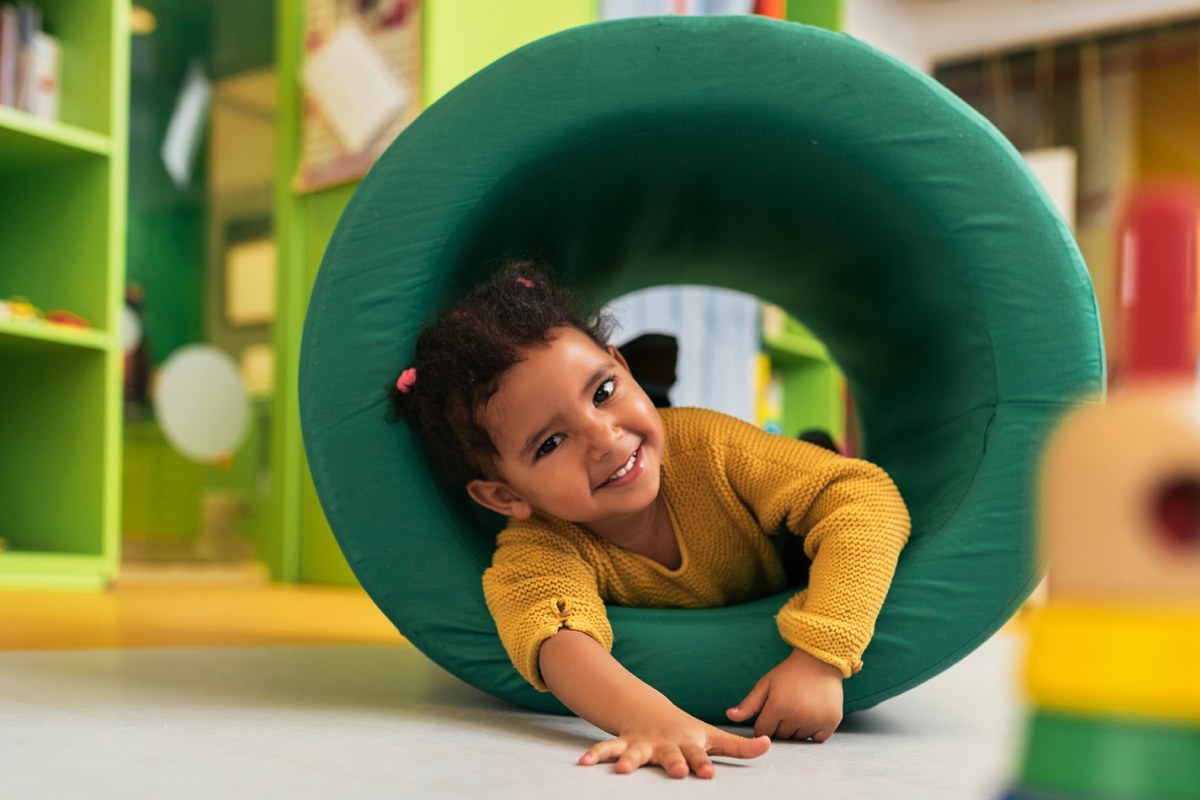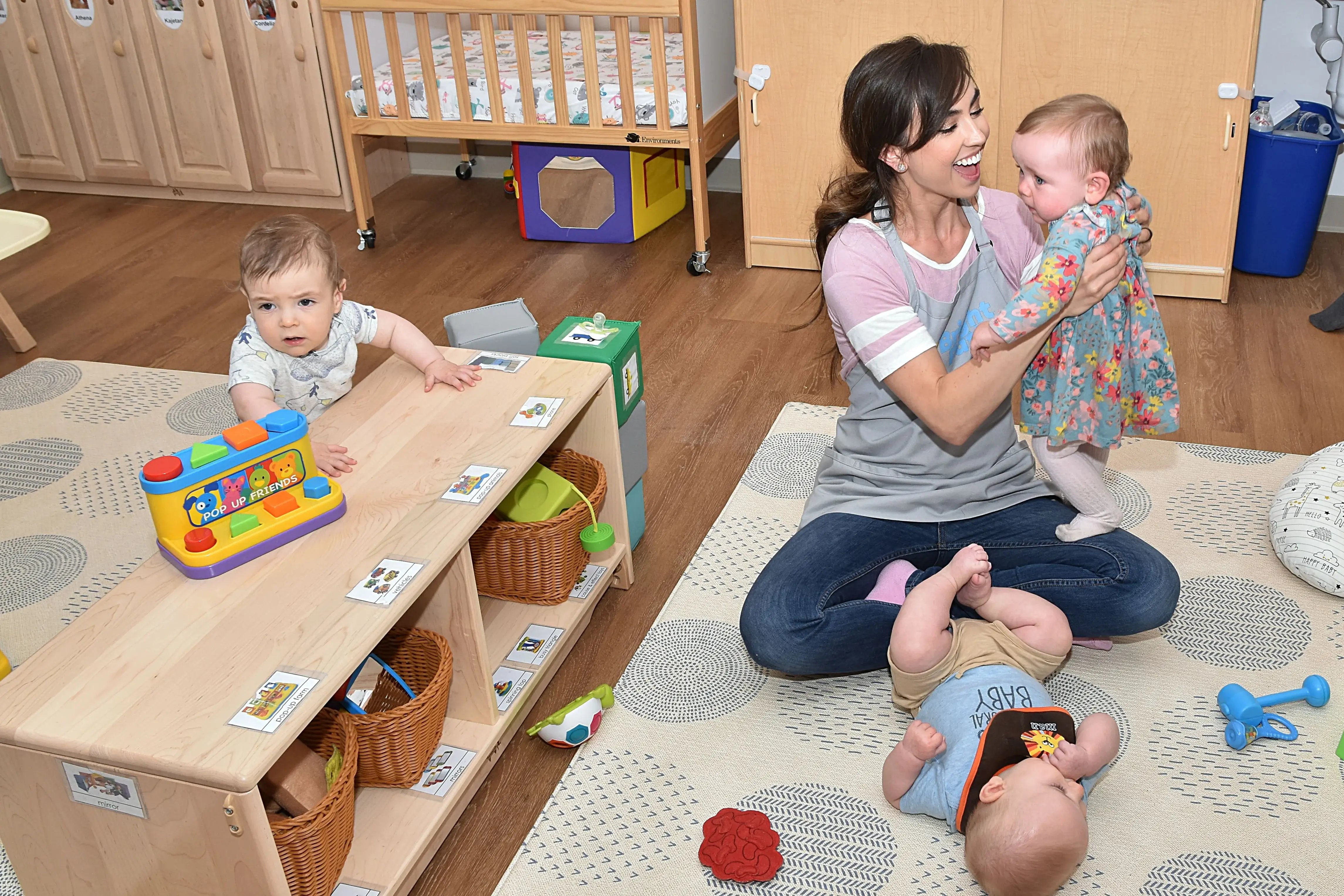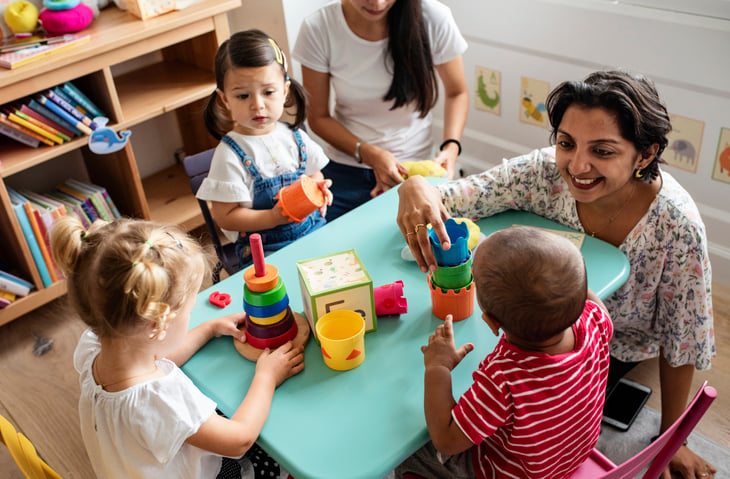How To Locate Reliable And Affordable Child Care Near Me
Wiki Article
The Duty of Day Care in Fostering Social Skills and Very Early Knowing
Daycare serves as a considerable environment for young kids, facilitating crucial social communications that advertise early learning. In this structured setting, kids engage with caretakers and peers, creating necessary communication and cooperation skills. As they navigate play and different tasks, they find out to resolve conflicts and construct psychological intelligence. Comprehending the nuances of these communications exposes the extensive impact daycare carries a child's growth, forming their future partnerships and scholastic readiness. What particular skills do kids acquire in this setting?The Relevance of Social Communication in Childcare
While many parents identify the significance of very early youth education, the function of social communication in childcare is usually taken too lightly. Daycare settings provide youngsters with important chances to involve with peers, fostering important social skills. During these formative years, youngsters discover to browse different social characteristics, such as sharing, cooperation, and problem resolution. Connecting with diverse age teams and personalities improves their ability to adapt to different environments and develop empathy towards others.
Building Interaction Skills Through Play
Play offers as an effective tool for children to construct critical interaction abilities in childcare settings. With various play tasks, kids talk, express their thoughts, and learn to pay attention to others. Parlor games, for circumstances, motivate them to make use of language in different contexts, promoting vocabulary expansion and understanding of social hints.
Furthermore, narration throughout play allows kids to communicate emotions and concepts, helping them create narrative abilities and self-confidence in their spoken expressions. In general, play not only functions as a satisfying activity however likewise as an important platform for establishing the interaction abilities required for successful social interactions in later life.
Motivating Cooperation and Synergy
Collaboration and synergy are important skills that youngsters can grow in daycare environments. Through numerous team tasks, such as building jobs or collaborative video games, kids discover to share responsibilities and pursue usual goals. These interactions foster an understanding of the significance of paying attention to others, discussing duties, and jeopardizing when required.In day care setups, caregivers often produce opportunities for kids to participate in team effort by motivating them to get involved in team jobs. This not only assists kids establish social bonds however also grows a sense of belonging and area.
As they navigate these participating experiences, kids gain beneficial understandings into the dynamics of collaborating with peers. They discover to appreciate diverse perspectives and recognize that each participant contributes uniquely to the team effort. Ultimately, these early lessons in collaboration and teamwork lay the groundwork for much healthier connections and effective partnership in future social and scholastic settings.
Structured Discovering Activities and Cognitive Growth
Structured learning activities play an integral role in promoting cognitive development in children (Childcare North York). These activities, which consist Daycare North York of puzzles, storytelling, and hands-on experiments, boost crucial reasoning and problem-solving skills. In a daycare setting, organized understanding urges youngsters to involve with their peers, boosting their capability to process info and comprehend numerous concepts
Through directed play and interactive tasks, youngsters create fundamental abilities such as numeracy and proficiency. For example, tasks centered around numbers can aid kids comprehend mathematical principles, while narration improves language acquisition and understanding. Furthermore, structured knowing permits instructors to assess developing progression and tailor tasks to private discovering requirements.

Incorporating a varied range of organized tasks not only advertises cognitive growth however also prepares children for future scholastic success. By offering a balanced atmosphere that cultivates expedition and query, day care programs play a necessary duty in shaping the cognitive capabilities of young learners.
Promoting Psychological Knowledge and Confidence
Emotional intelligence and self-confidence are essential parts of a child's advancement, enhancing the cognitive skills cultivated with structured understanding activities. In day care settings, children are supplied with chances to express their feelings and involve in social interactions, which are essential for building emotional awareness. Through directed play and team activities, youngsters discover to identify their sensations, identify those of others, and establish empathy.Interaction with caretakers and peers assists to cultivate self-worth and resilience. Favorable reinforcement and inspiration from adults encourage kids to take dangers and face difficulties, cultivating a sense of success. As they navigate social dynamics, kids build confidence in their capabilities to interact, collaborate, and fix disputes - Child Care Near Me. This caring environment permits the steady advancement of emotional intelligence, which is vital for future social relationships and total health. Because of this, daycare plays a substantial role in fostering both emotional intelligence and confidence in kids
Often Asked Questions
How Can Parents Select the Right Daycare for Their Youngster?
Moms and dads should take into consideration aspects such as area, personnel certifications, security requirements, curriculum, and evaluates from various other parents when selecting the best childcare for their child, guaranteeing it straightens with their kid's developing demands and family worths.
What Age Is Finest for Beginning Childcare?

Just How Does Daycare Impact Children's Behavior in your home?
Childcare frequently favorably affects children's habits at home by improving social skills, promoting self-reliance, and motivating psychological policy (Daycare North York). As a result, kids may display enhanced interaction and teamwork, bring about more unified family dynamicsExist Any Type Of Downsides to Daycare Participation?
Yes, there are disadvantages to childcare attendance, consisting of potential splitting up stress and anxiety, exposure to health problems, and inconsistent caregiving. These variables can impact a child's emotional health and adjustment in your home, influencing total family characteristics.Exactly How Can Moms And Dads Assistance Social Abilities Discovered at Childcare?
Moms and dads can sustain social skills learned at daycare by assisting in playdates, encouraging participating activities, modeling favorable communications, going over feelings, and enhancing sharing and interaction at home, thus improving their youngster's social growth and confidence.Daycare serves as a considerable setting for young youngsters, promoting important social interactions that advertise early learning. Childcare settings offer youngsters with important opportunities to involve with peers, promoting important social skills. Play serves as an effective tool for youngsters to construct important interaction skills in day care settings. In childcare setups, kids are supplied with possibilities to reveal their emotions and involve in social communications, which are critical for constructing emotional awareness. Childcare often positively affects children's behavior at home by boosting social abilities, advertising freedom, and encouraging psychological guideline.
Report this wiki page